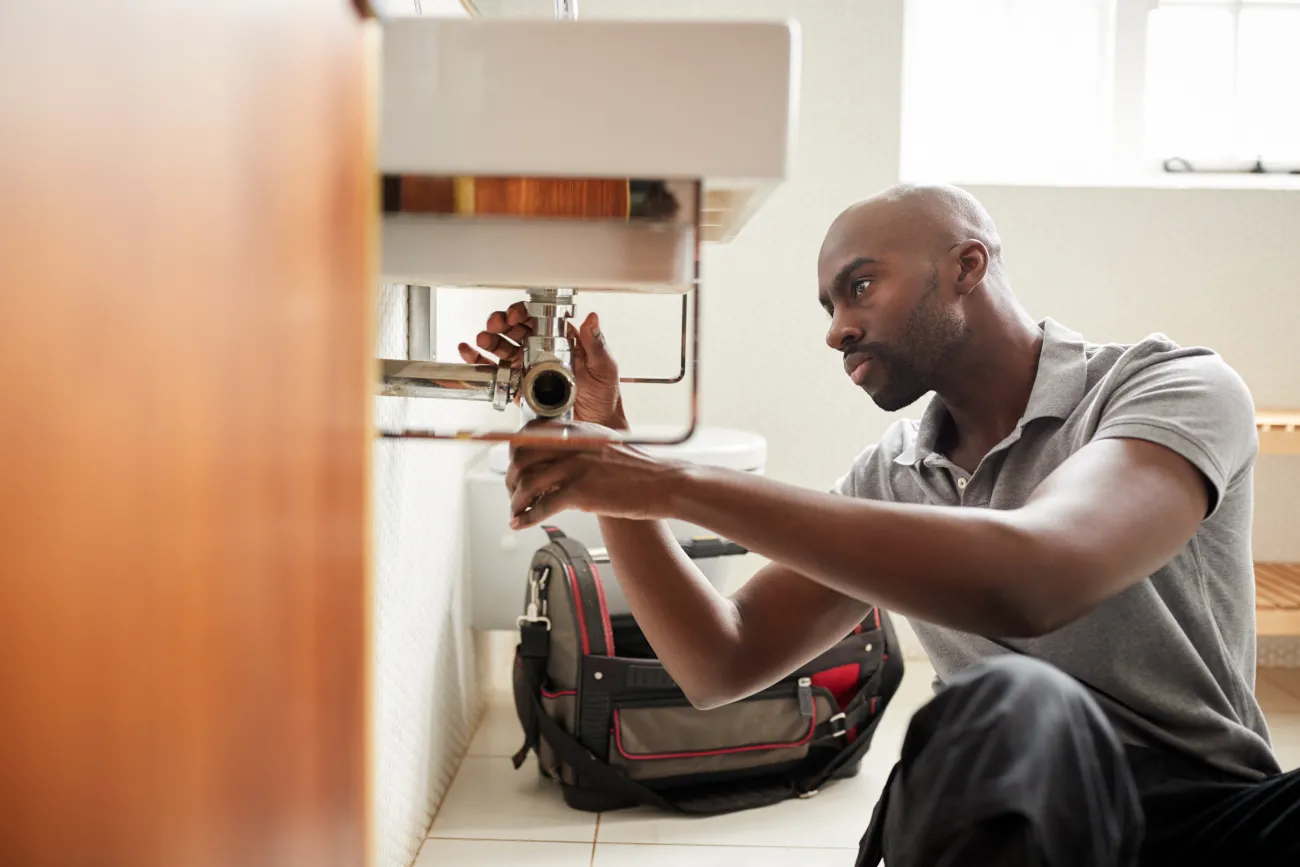
Plumber Job Description: What Does a Plumber Do?

Responsibilities
- Install and repair pipes for water, gas or other services
- Interpret blueprints for pipe laying
- Assemble fittings and valves
- Install fixtures, appliances and supports for pipes and equipment
- Inspect and test plumbing systems for leaks and problems
- Follow all codes and regulations
- May work on septic systems
- Estimate costs and prepare bids
How To Become a Plumber: FAQs
The bottom line:
This in-demand trade job offers the promise of a well-paying job with stability over the long term. To learn this trade, you'll need considerable training, but for most of it, you can earn while you learn. There aren't too many jobs that present such a complete package.
So, if you like problem-solving and working with your hands, consider this career. Look at SkillPointe's training programs near you to get started.
What I like about being a plumber
For Shawn Powell, being a plumber runs in the family, so he knows what he's talking about.
“There’s good money to be made in this always-in-demand trade,” he says. It's a great choice for anyone who isn’t afraid of hard work.
Watch the video and learn why he thinks being a plumber is so worthwhile.
Are there certification requirements for this career?
Find Plumber Training In Your Area
Need help reaching your goals?
Explore our Financial Resources page for scholarships, FAQ answers and student support services.

